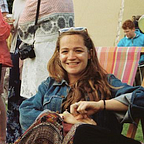ResQ: From Dumpster Diving To Fine Dining
How this European startup is using tech to address our food waste problem.
The fight against food waste isn’t exactly new. For decades now freegans, eco-warriors and ideologically minded students have been dumpster diving and food sharing in an attempt to save the planet and source a cheap meal at the same time.
Yet recently, discussions surrounding sustainable food consumption are happening everywhere. The topic of food waste seems to have finally captured the attention of the mainstream media, as have initiatives already working for years on the problem. Consequently, governments, supermarkets and consumers are now under pressure to do more to reduce the 88 million tonnes of food wasted in the EU alone each year.
Naturally the startup world has already caught up with the hype, leading to an explosion of apps that attempt to disrupt our wasteful food chain. Among the most exciting is the Finnish-born ResQ, which was launched here in Germany in June 2017.
Governments, supermarkets and consumers are now under pressure to do more to reduce the 88 million tonnes of food wasted in the EU alone each year.
The concept of ResQ is simple. Local restaurants can sign up to the app and use it throughout the day to sell on their unsold meals for reduced prices. ResQ provides the infrastructure (including compostable sugar cane boxes), and all customers have to do is turn up at the restaurant at a pre-allotted time to take home a fresh meal at a discount. Think a ‘Thai surprise box’ in Kreuzberg for 2 Euros or an all-you-can-eat lunch buffet from the Mövenpick Hotel for 3.45
Such a simple, profitable concept suggests a shrewd business mind. Yet while the business prowess of the ResQ team is in no doubt, the company still embodies the hippy roots of the food waste movement. Visiting the startup’s Kreuzberg office feels like stepping into the chillout area at a music festival; desks sit under wooden structures, with ladders leading up to sofas on platforms.
Moreover, the team itself is comprised of veteran dumpster divers who see the technology as an opportunity to make what they have been doing for years more accessible to the average working person or student. “Honestly it just makes me sad,” says Johanna Schuck, from the marketing team. “I think everyone who works here is really sad there’s no solution yet for all the good food that doesn’t get bought.”
The team knows the system is broken, and are therefore looking to bring about change beyond individual actions like dumpster diving. “Now we’re on to something bigger, where we can connect restaurants with users,” says Johanna.
“I think everyone who works here is really sad there’s no solution yet for all the good food that doesn’t get bought.”
The mission-driven approach of the ResQ team is reflected in the wider Berlin food waste scene, which currently favours collaboration over competition. Aside from working with organisations such as the Tafel and Foodsharing, ResQ has also recently merged with their biggest competitor, the German company MealSaver. Neither side saw the point in wasting resources on competing, when both companies have the same end goal.
Perhaps it is this network approach that accounts for the success of ResQ so far. Since launching in 2016, the startup has saved an estimated 120 tonnes of food across Europe (aside from Germany they are currently active in Finland, Sweden, Netherlands and Estonia). The app currently has 200,000 users, 20,000 of which are in Germany, a number which they hope to grow as they turn their focus to expanding the German market.
The company still faces challenges. “Right now we are up against peoples’ laziness,” explains Johanna. “It’s so easy for people to order food to their doorstep in 30 minutes, for not that much money.”
Since launching in 2016, the startup has saved an estimated 120 tonnes of food across Europe.
In a city swarming with delivery drivers and filled with good, cheap food options, it seems that education is top of ResQ’s agenda. Berliners need to know why they should go out of their way to rescue a meal rather than pop out to their local kebab house or order something online.
Yet this challenge is not something the team are likely to shy away from. It’s clear that ResQ isn’t another opportunistic startup co-opting the language of activism in order to sell what is undeniably a great product. The people behind ResQ truly care about reducing our continent’s food waste, and are simply happy to have found a profitable way to help them do it.
If you‘re in Berlin and want to ResQ your own meal (really, just do it) check out https://resq-club.com/ or follow ResQ on facebook, https://www.facebook.com/resqclubdeutschland/
